May 15, 2025 | 08:42 GMT +7
May 15, 2025 | 08:42 GMT +7
Hotline: 0913.378.918
May 15, 2025 | 08:42 GMT +7
Hotline: 0913.378.918
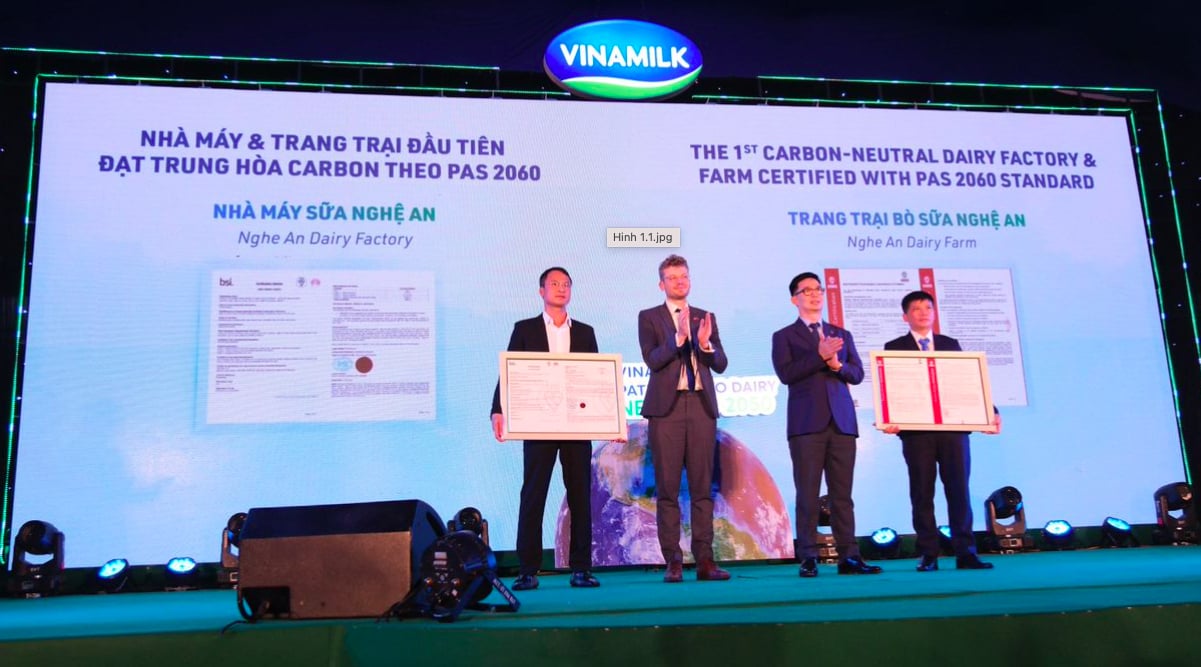
Vinamilk Nghe An dairy farm is the first to receive the carbon neutrality certificate (PAS2060: 2014).
Recently, Vinamilk became the first dairy brand to have a factory and a farm certified carbon neutral according to the PAS2060:2014 standard. This event has resonated and has a positive impact in the context that the journey to Net Zero in 2050 is more interesting than ever to realize the commitment of the Vietnamese Government to the international community at COP26.
To achieve this certification for 2 member units in Nghe An, Vinamilk neutralized 17,560 tons of CO2 emissions, equivalent to the absorption capacity of roughly 1.7 million mature trees.
This includes a dairy farm which is a breeding model assessed to face ample challenges in reducing and neutralizing greenhouse gases, with neutral emissions reaching 12,560 tons of CO2. This is a very encouraging effort of the enterprise.

The representative of Bureau Veritas (UK) (left) awarded the certificate of carbon neutrality to Vinamilk's farm in Nghe An.
Nguyen Viet Dung, General Director of Bureau Veritas - PAS2060:2014 certification body for Vinamilk's farms, shared: “Cutting greenhouse gas emissions and moving to Net Zero in the dairy industry is very challenging. This goal requires investment in solutions comprehensively. It can be said that the results achieved by Vinamilk greatly encourage the Net Zero progress of the dairy industry in general. The first strategy towards Net Zero at Vinamilk's farms is to minimize greenhouse gas emissions to the environment, save resources, and promote the circular economy with the goal of "nothing is left out."
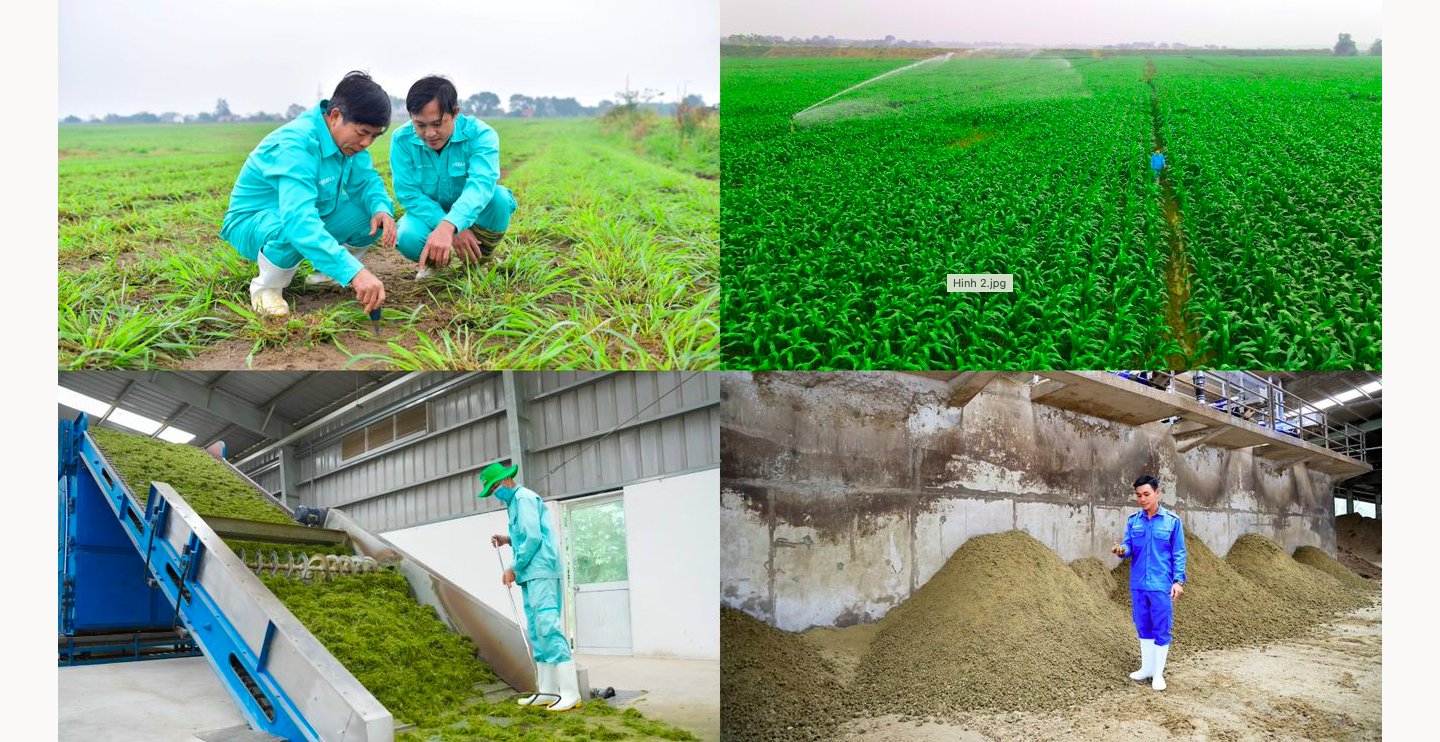
Applying a circular economy in agriculture and dairy farming brings many benefits to businesses.
To be more specific, Vinamilk applies the principle that the output of this process is fully utilized as an input for other processes, thereby reducing resource exploitation, waste treatment costs, and environmental pollution in the production, construction, and operation process.
On farms, all waste generated from livestock activities will be collected by modern systems and treated with biogas technology to form organic fertilizer for plants, improve soil, use gas to heat water to pasteurize milk for calves, dry grass, and serve farm operations.
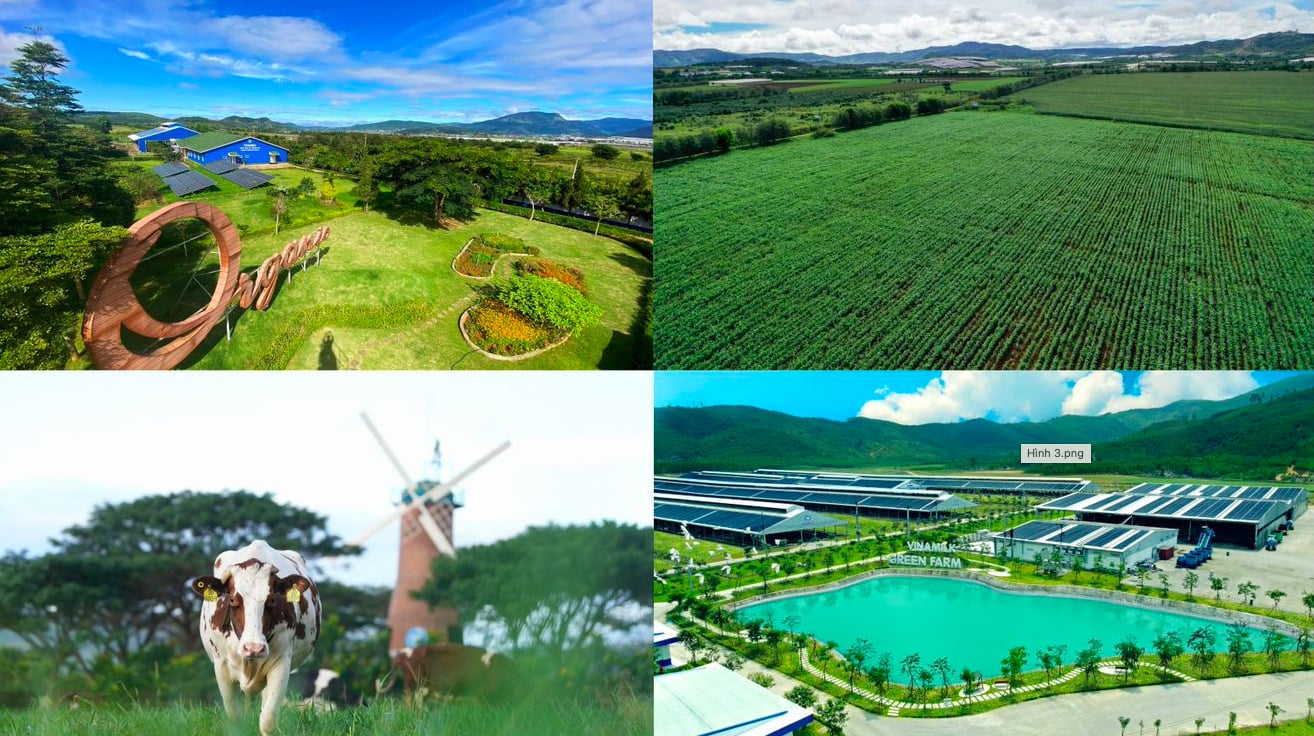
Each farm of this billion-dollar dairy business is a "green building" built with great effort.
Only at Green Farm Tay Ninh, with a scale of 8,000 cows and calves, with 500 tons of manure produced per day, this system has provided 100% organic fertilizer for 500 hectares of grassland, dealing with environmental problems and saving more than VND 100 million in electricity bills per month when it is replaced by gas energy from biogas.
The enterprise's initial investment capital is estimated at more than VND 3,000 billion (US$130 million) for 3 ecological Green Farms in Tay Ninh, Quang Ngai, and Thanh Hoa toward the sustainable agricultural model.
"In the coming time, we will step up investment and convert 13 other conventional farms to Green Farm to aim for sustainable development goals," the Vinamilk representative added.
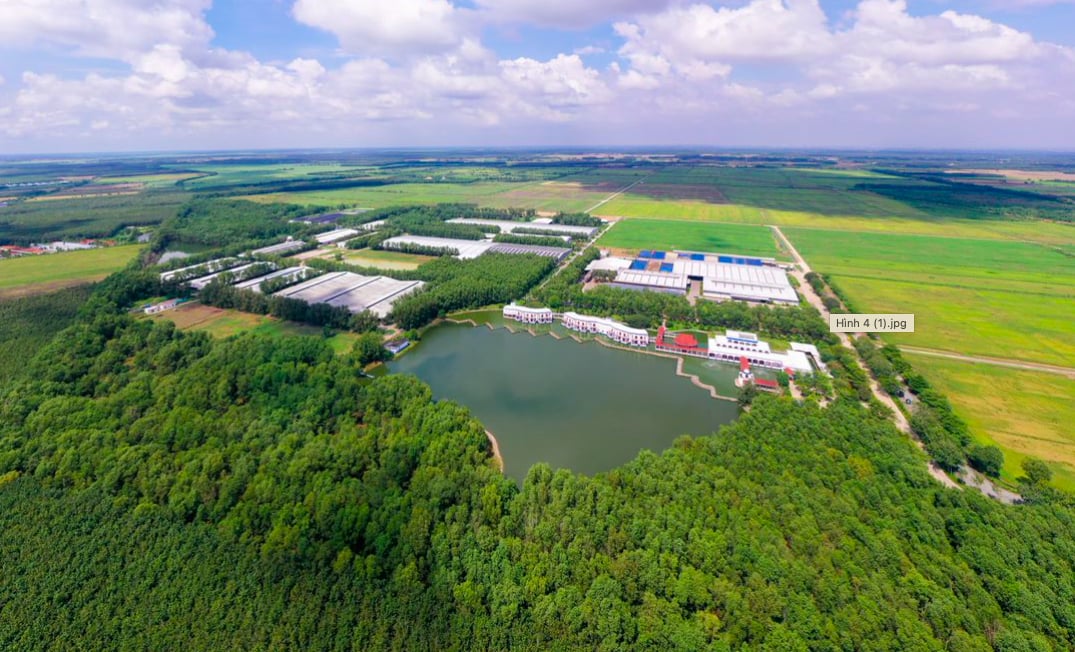
Many solutions to help reduce greenhouse gas emissions are applied by Vinamilk at farms.
To minimize the "carbon footprint" and the environmental impact, Vinamilk took the first steps more than 10 years ago. For example, at Vinamilk Organic Dalat, right from its inauguration (at the beginning of 2017), the farm was certified by Control Union (Netherlands) as the first European-standard organic dairy farm in Vietnam, or Vinamilk Nghe An Dairy Farm, also the first farm of Vinamilk and Vietnam in general to achieve the GlobalGAP (Global Good Agricultural Practices) standard in 2015.
Vinamilk has carried out this journey to sustainable development on all 13 farms in the system across the country. Specifically, 100% of farms have met GlobalGAP standards, using biogas and solar energy; organic methods cultivate 100% of the farm's land...
The indicators of resource-saving, water circulation, soil quality, and CO2 emission are measured and monitored annually through professional reports.
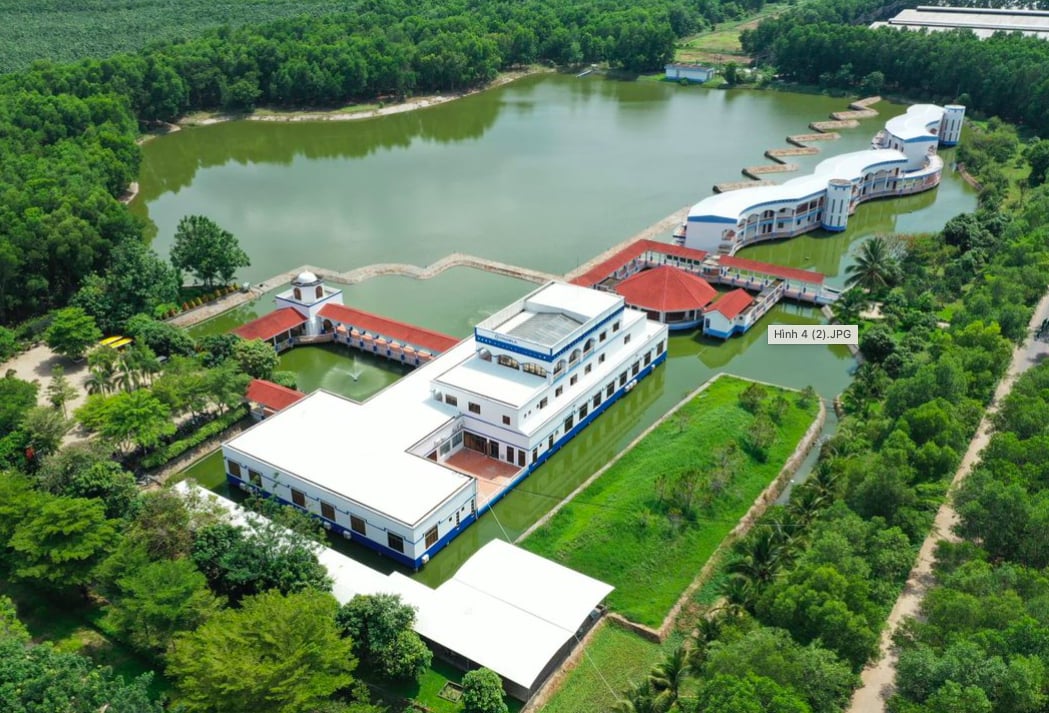
Trees are natural biological barriers that help limit impacts on the ecosystem and regulate the surrounding area's overall climate.
Another critical step in the process of reducing greenhouse gas emissions is carbon sequestration. Most farms spend 50 - 70% of the area on green areas and developing ecologically regulated lakes.
This not only helps absorb the amount of CO2 emitted during the breeding process but also creates a cooler, more comfortable, and favorable climate for developing dairy cows in the tropics.
Thanks to the comprehensive strategy calculated from the beginning, Vinamilk has always shown a pioneering role in general sustainable development and Net Zero. The enterprise also identifies sustainable agriculture as one of its 5-year strategic orientations, with a comprehensive investment.
This is not only meaningful to Vinamilk but also to the core factor to promote the dairy industry and agriculture in general towards more advanced and sustainability according to the general trends of the world.
“The global dairy industry has different and very diverse production models. We are researching and approaching pioneers to exchange and deploy models in their countries. We look forward to working with Vinamilk in this process as a leader and pioneer in Vietnam,” said Brian Lindsay, Director of the World Dairy Sustainable Framework (DSF).
Translated by Ha Phuc

(VAN) Use of high-quality broodstock and biotechnology is regarded as the most effective approach to ensuring sustainable and economically viable shrimp aquaculture ahead of climate change and the emergence of increasingly intricate disease patterns.

(VAN) Carbon farming is a form of agricultural practices that helps absorb more greenhouse gases than it emits, through smart management of soil, crops, and livestock.

(VAN) This is a key content of the Memorandum of Understanding recently signed between the Vietnam Fisheries Society and Kunihiro Inc of Japan.

(VAN) To achieve the goal, local authorities and businesses in Kon Tum province have fully prepared the necessary conditions for the new Ngoc Linh ginseng planting season.
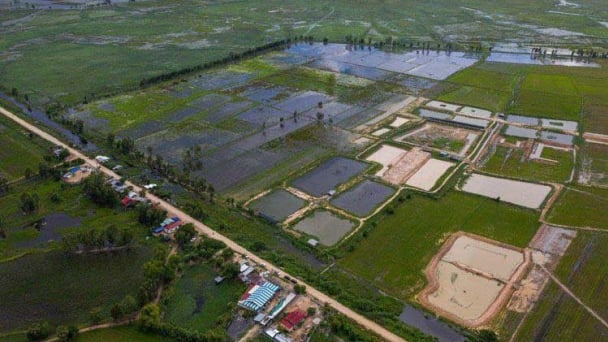
(VAN) Jiangsu province is gearing up to host training programs in Phnom Penh, the capital of Cambodia, this year to establish the Fish and Rice Corridor.
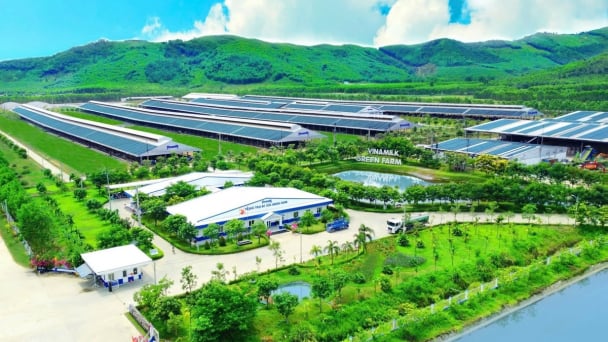
(VAN) Le Hoang Minh, representing Vinamilk, shared the company's experience in energy saving and green energy transition for production at a workshop held during the P4G Summit.
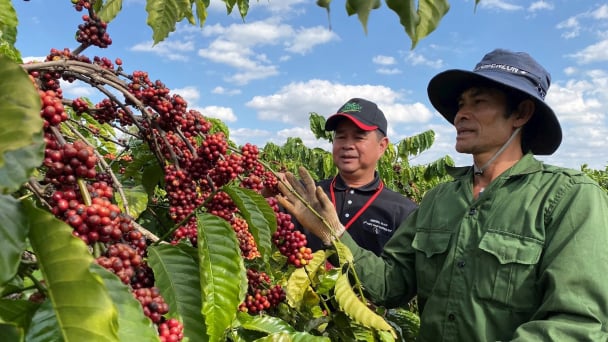
(VAN) Businesses emphasize fairness and equality when integrating social factors into their sustainable development strategies.